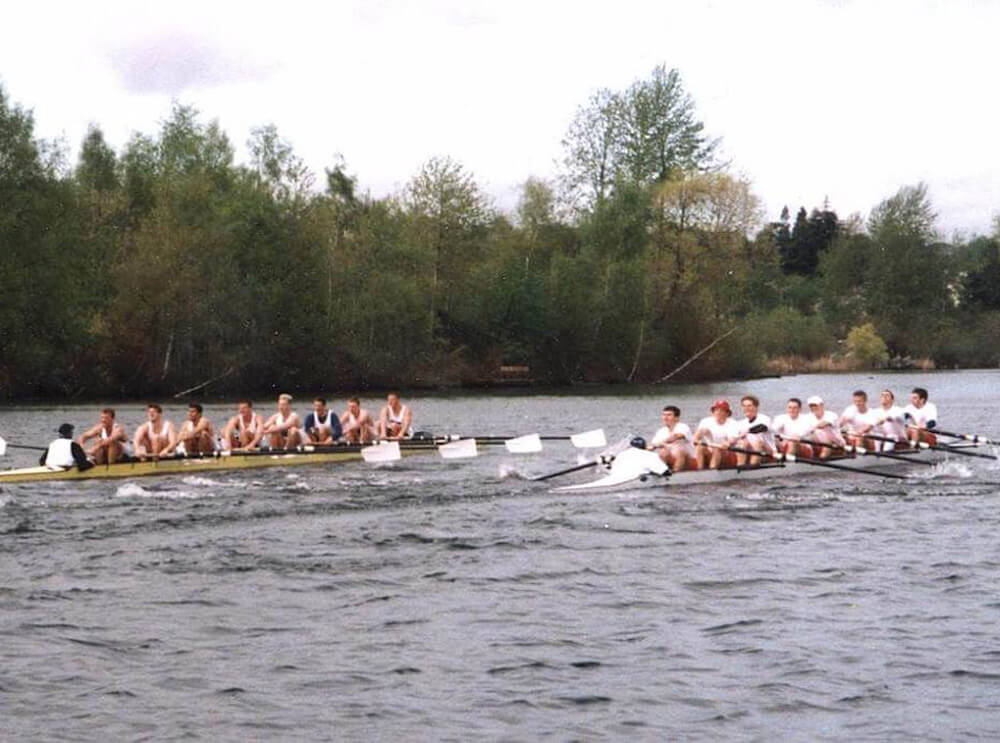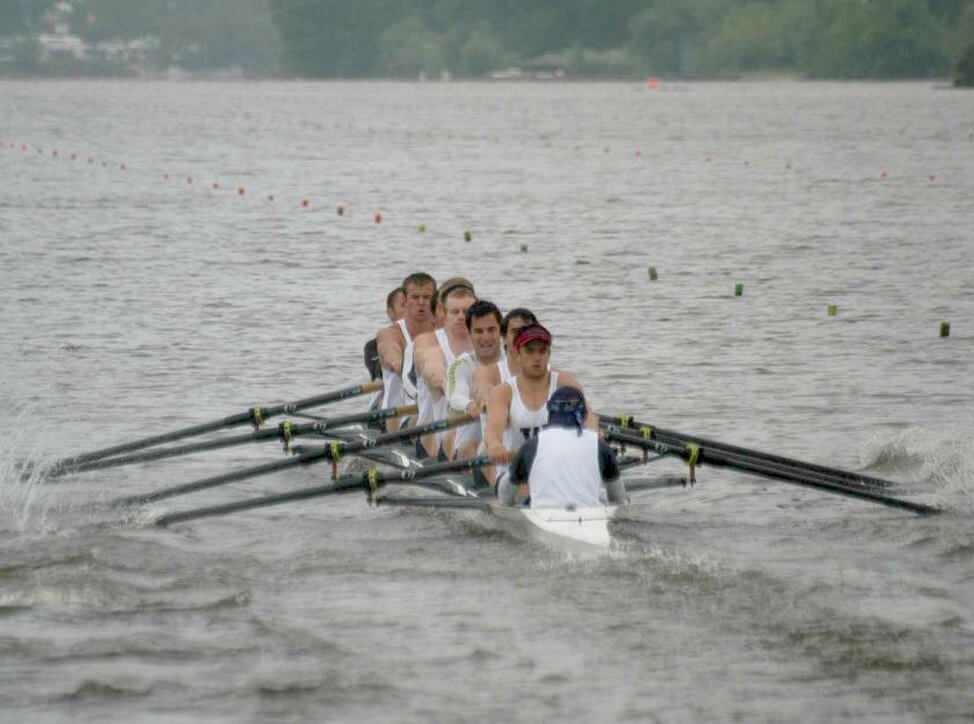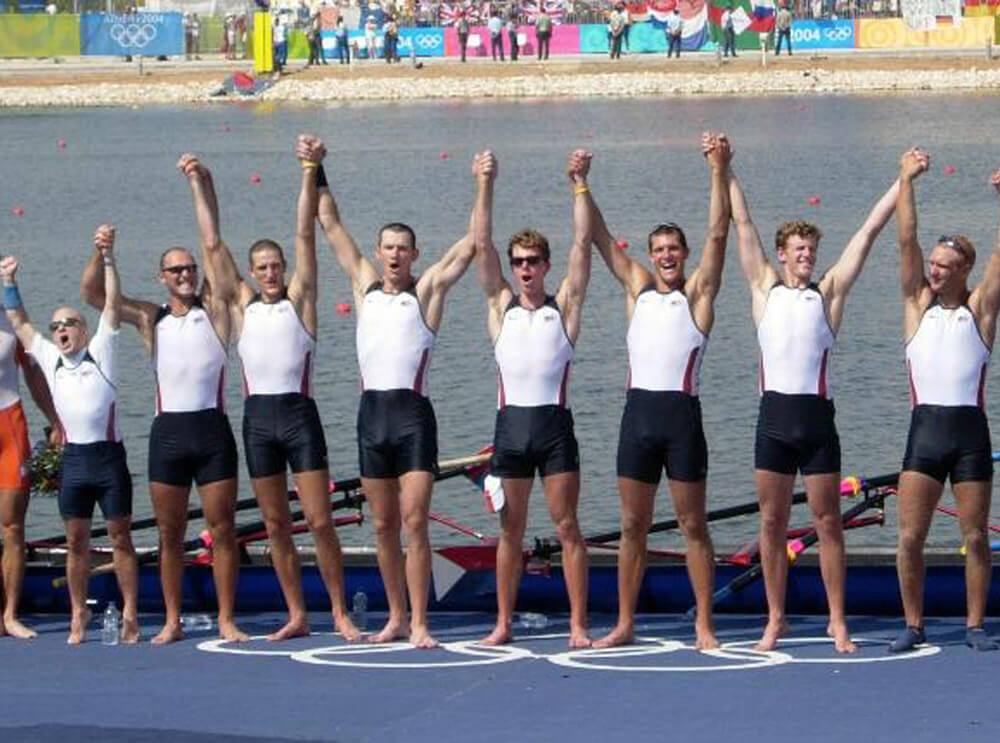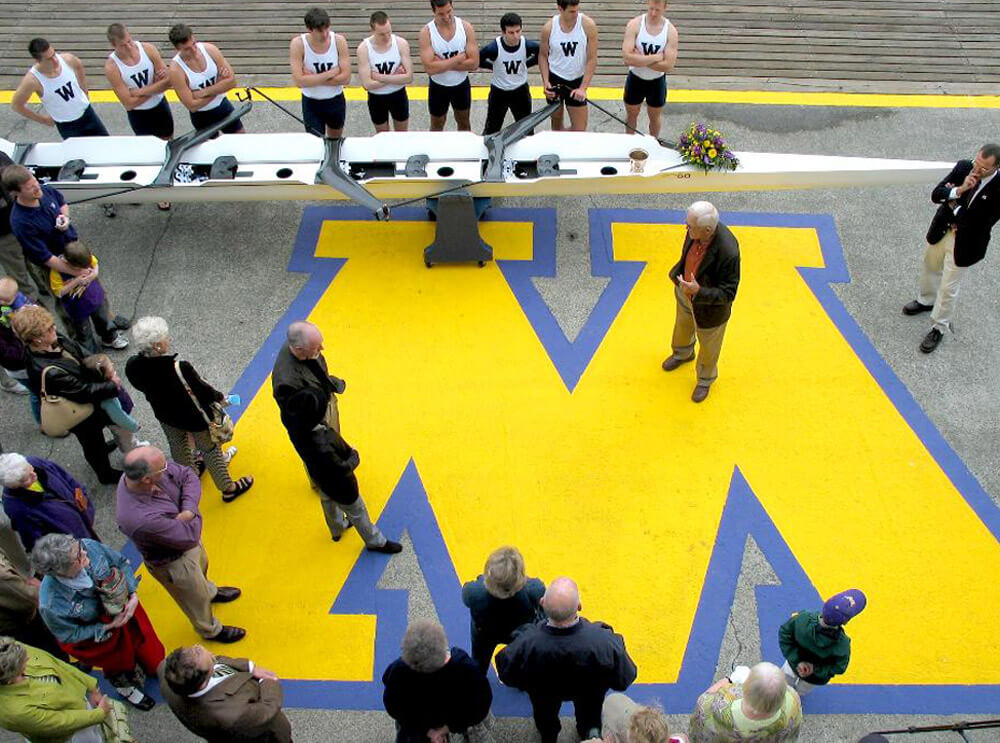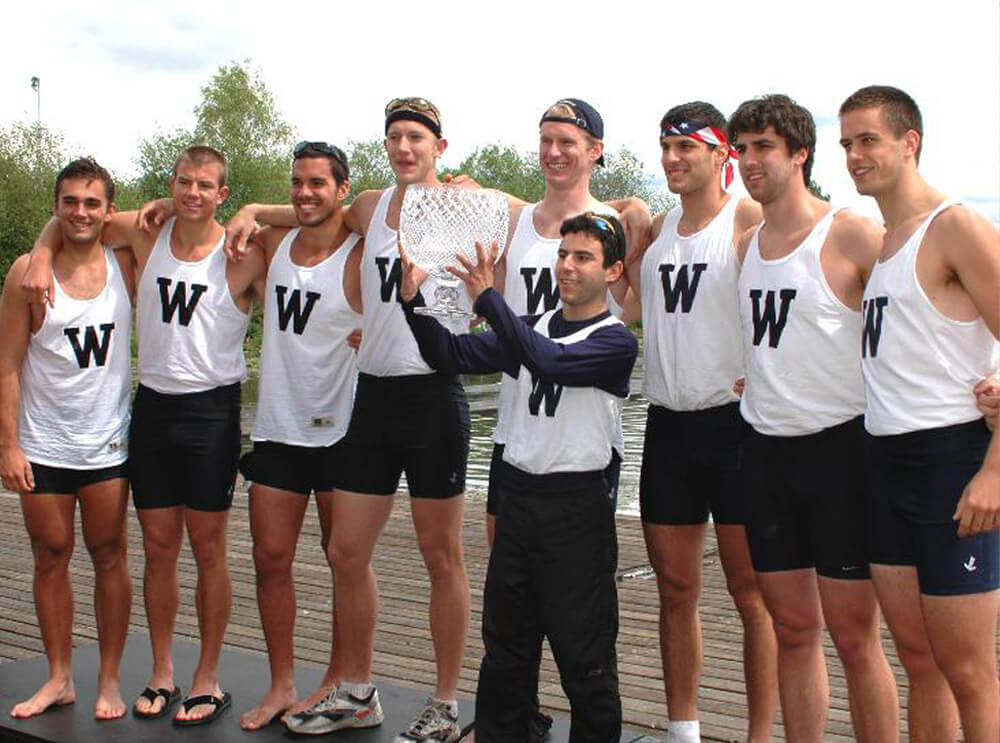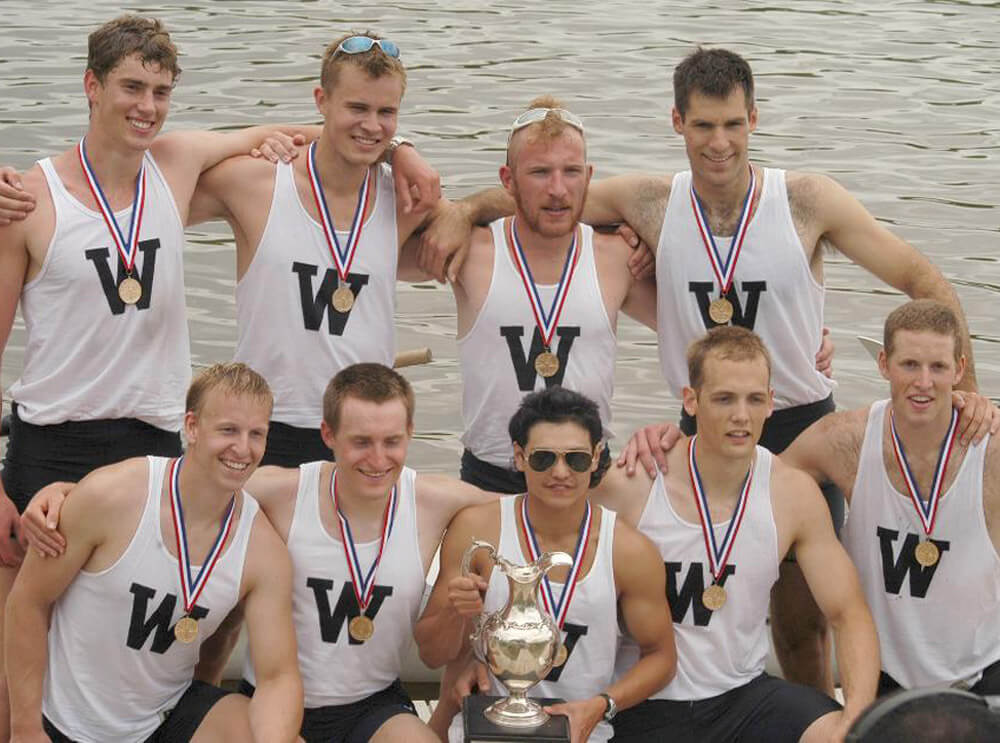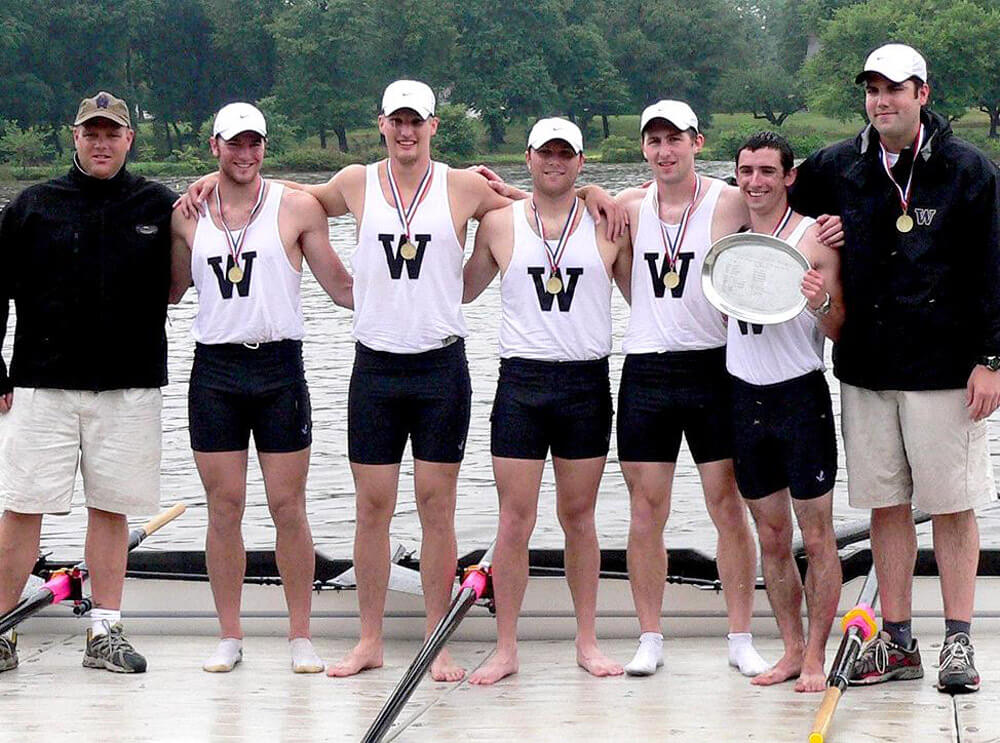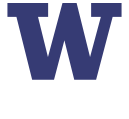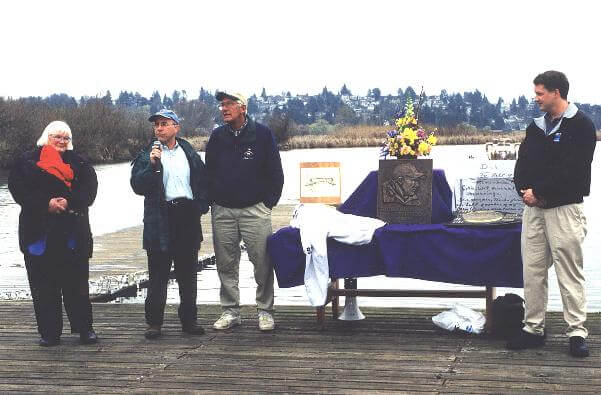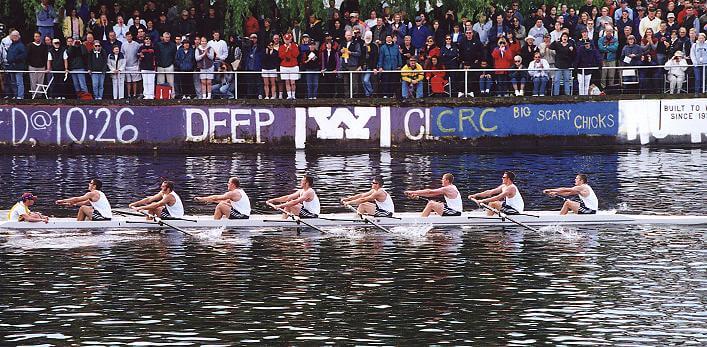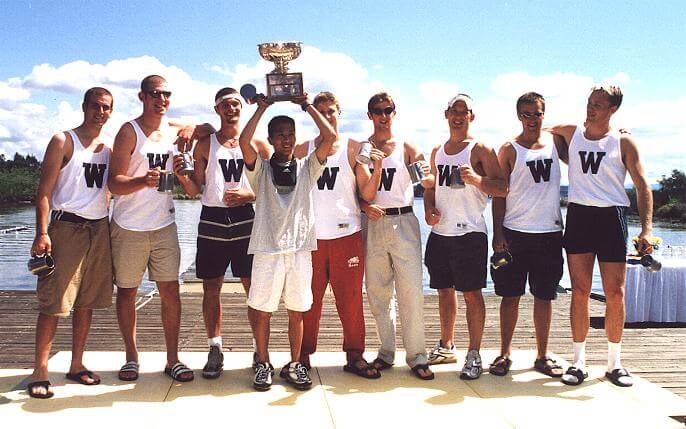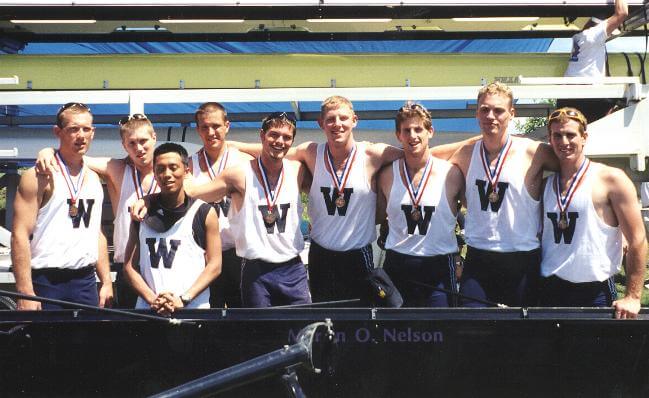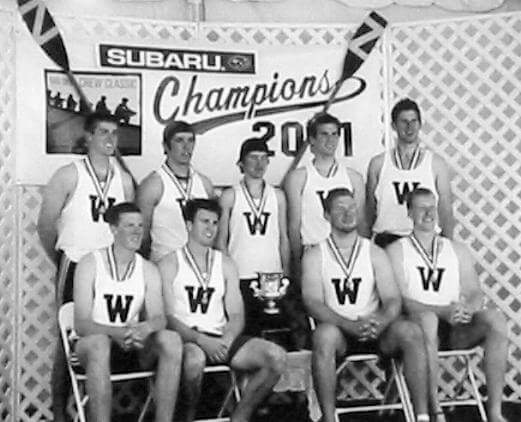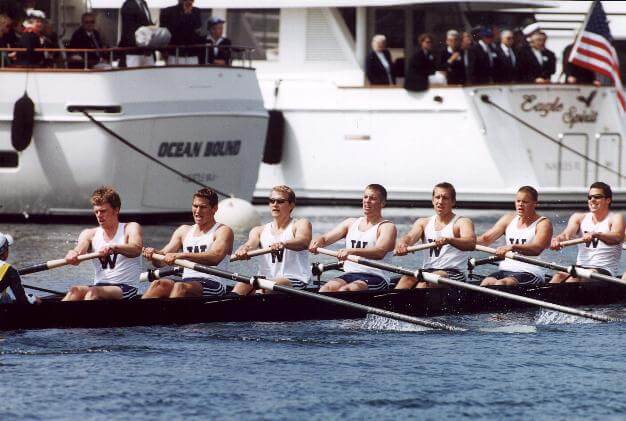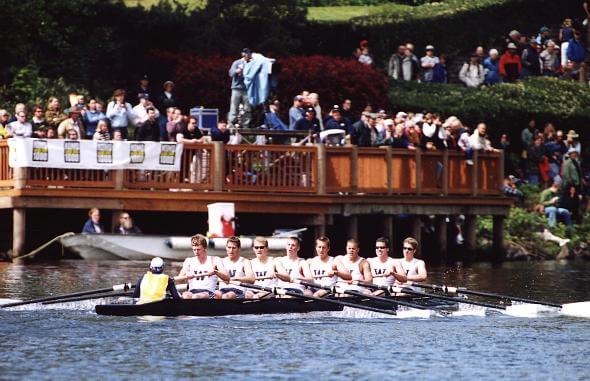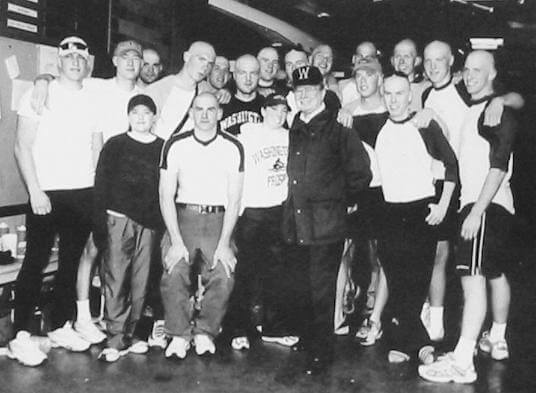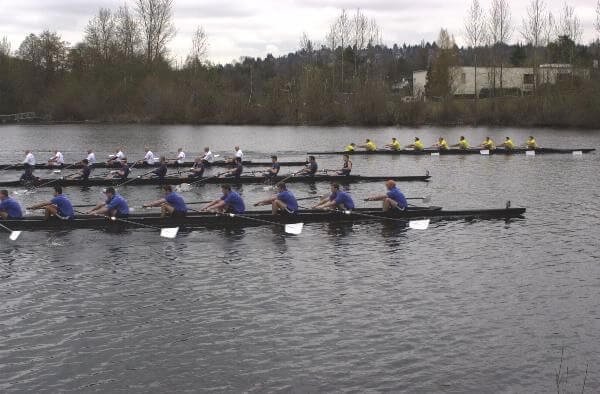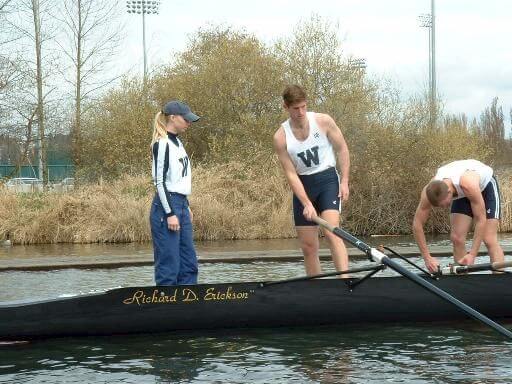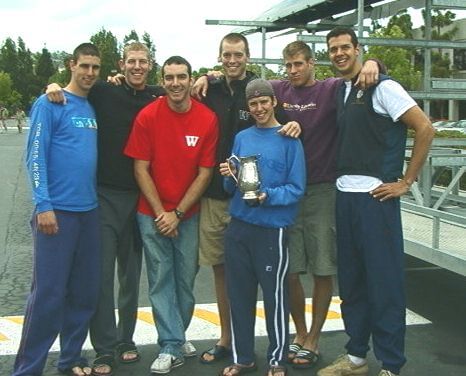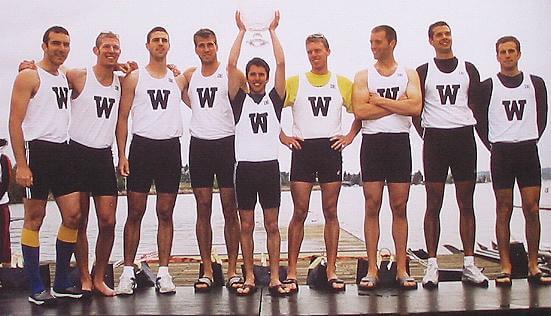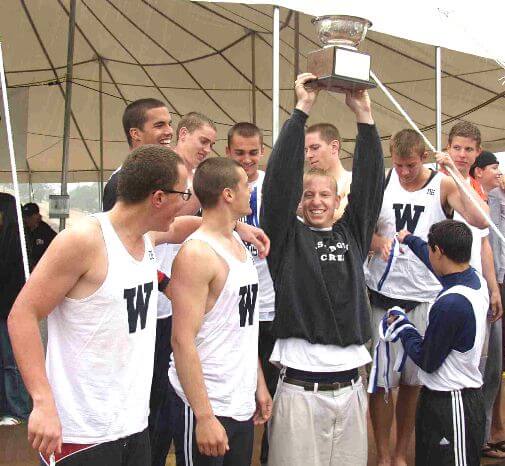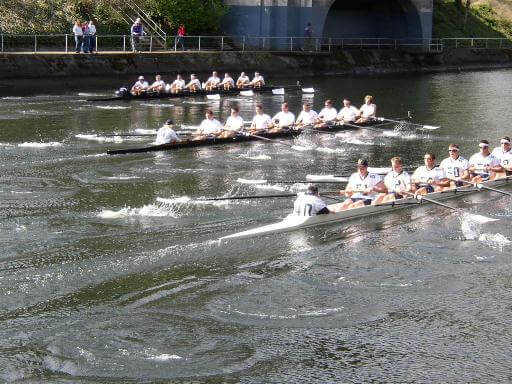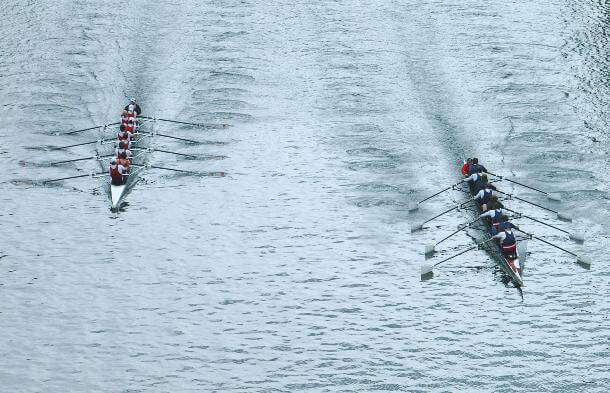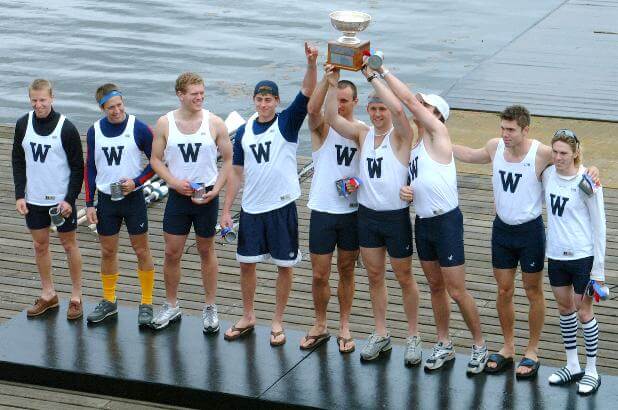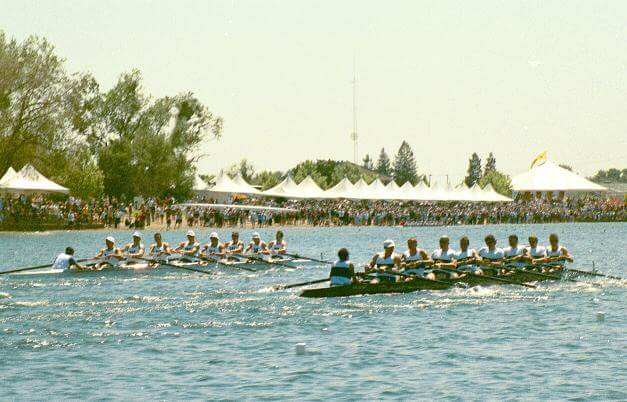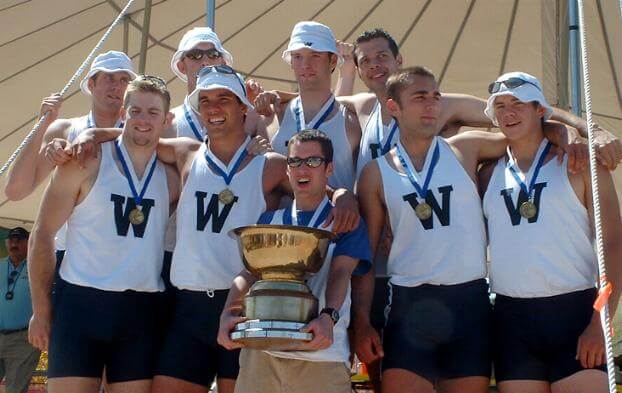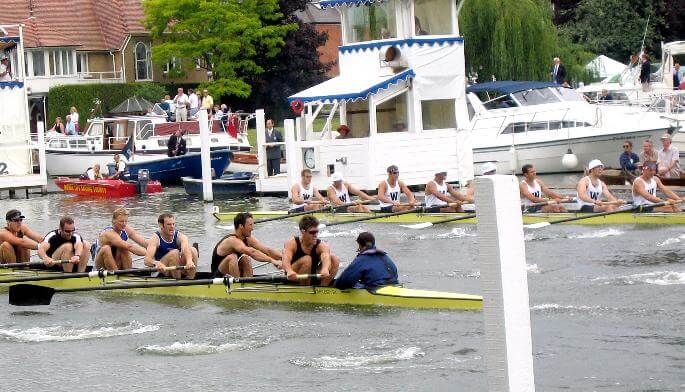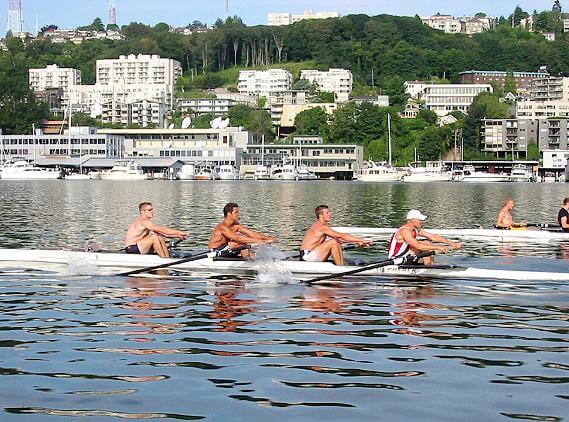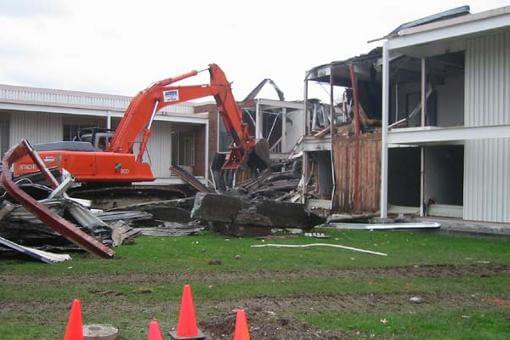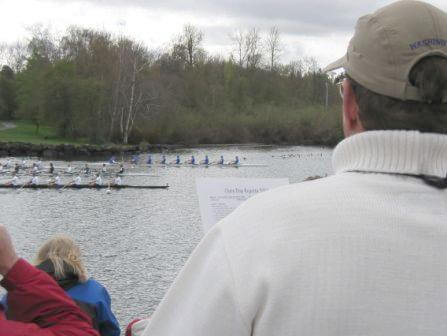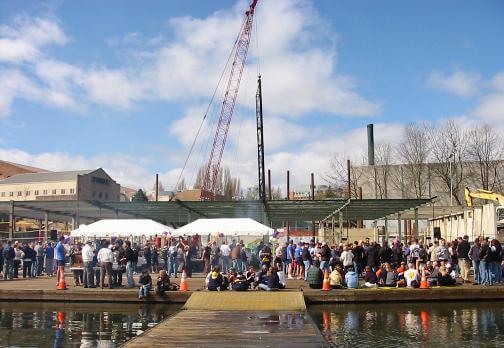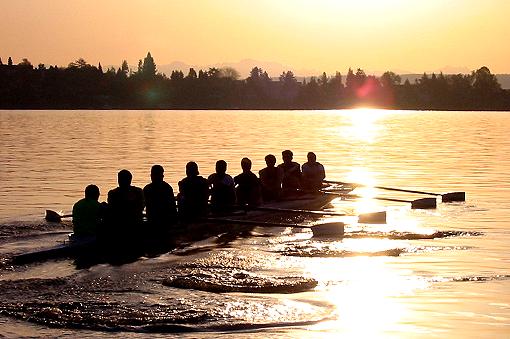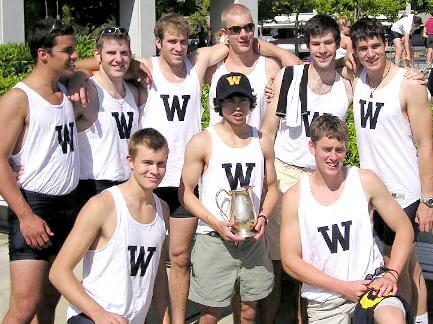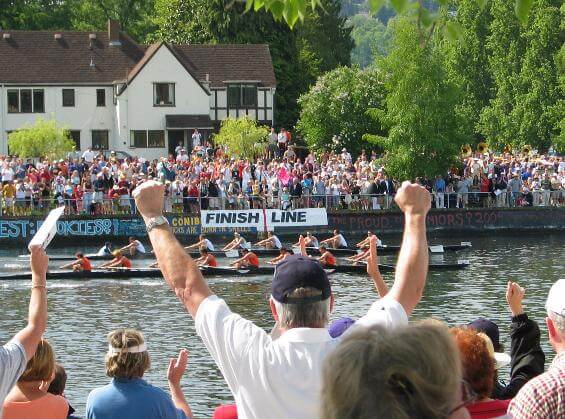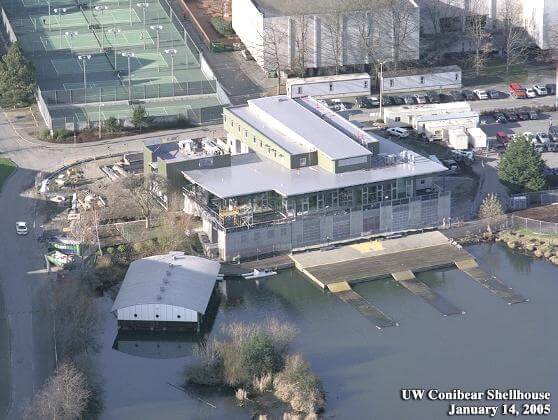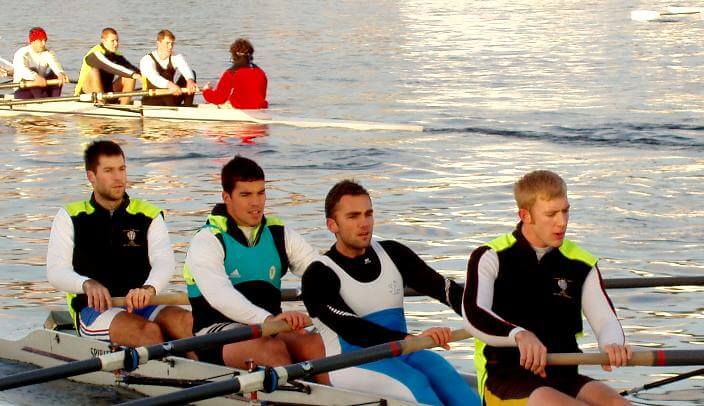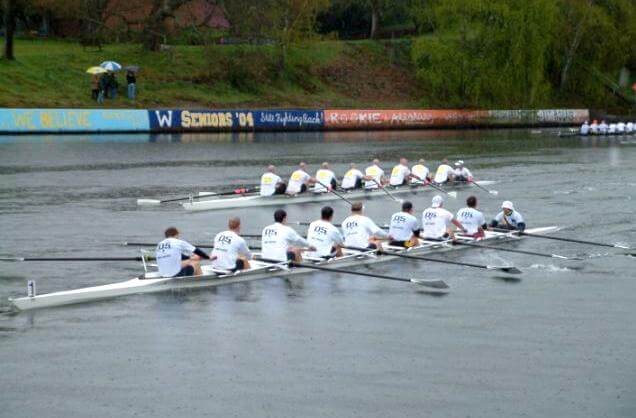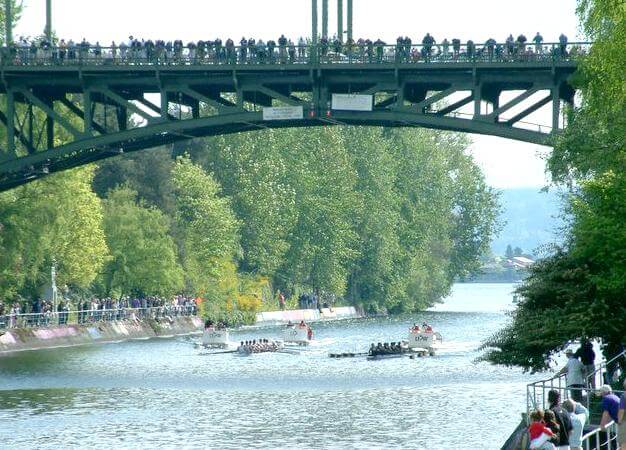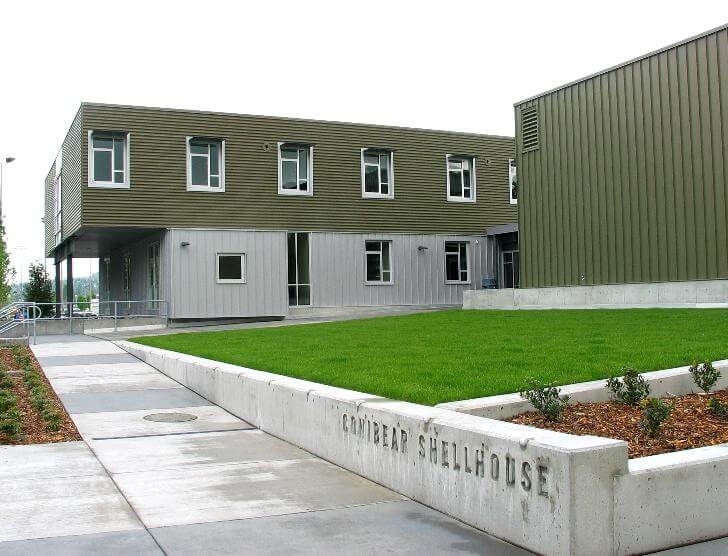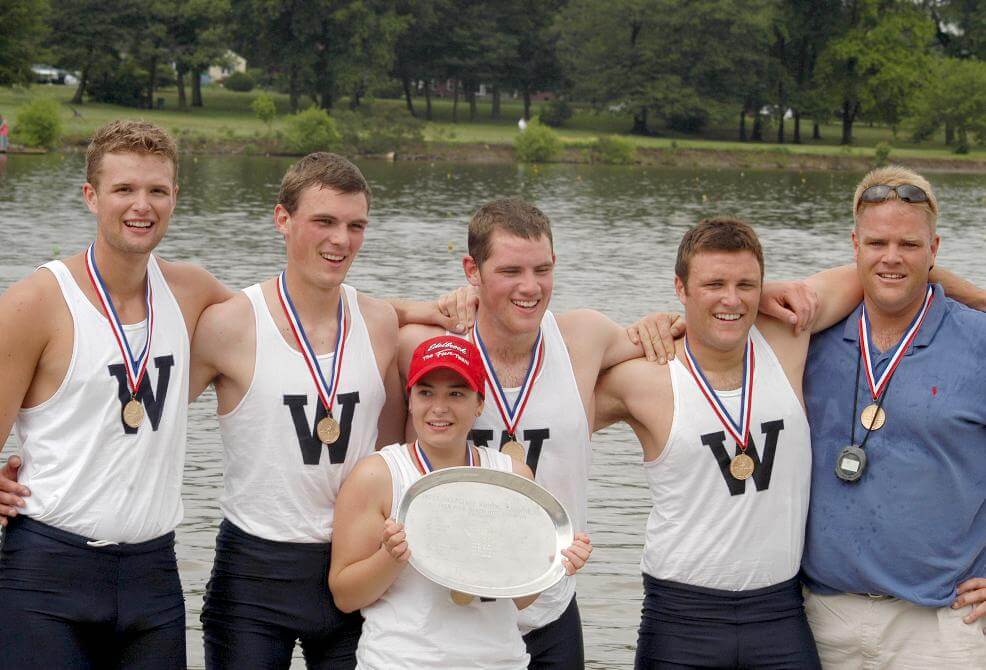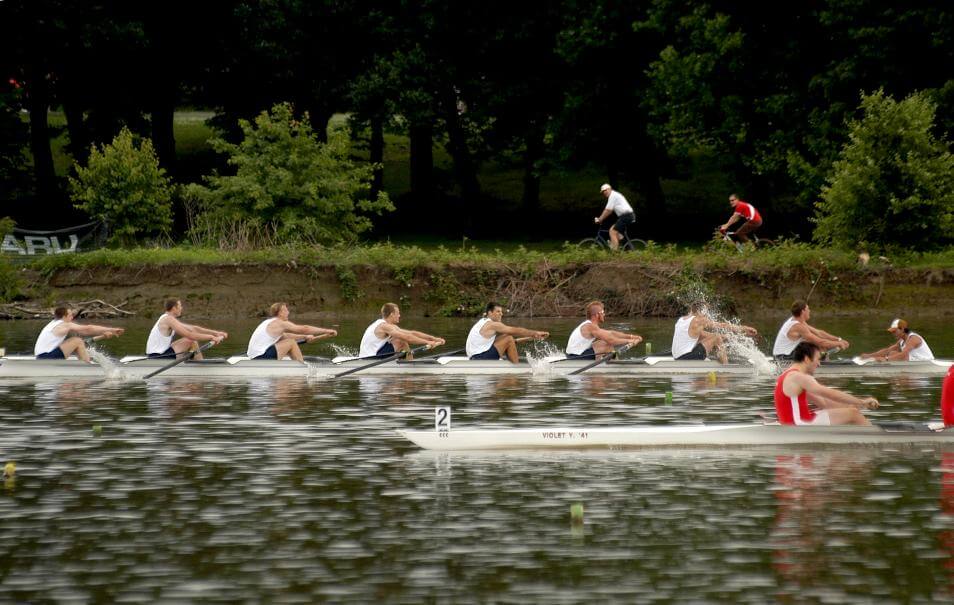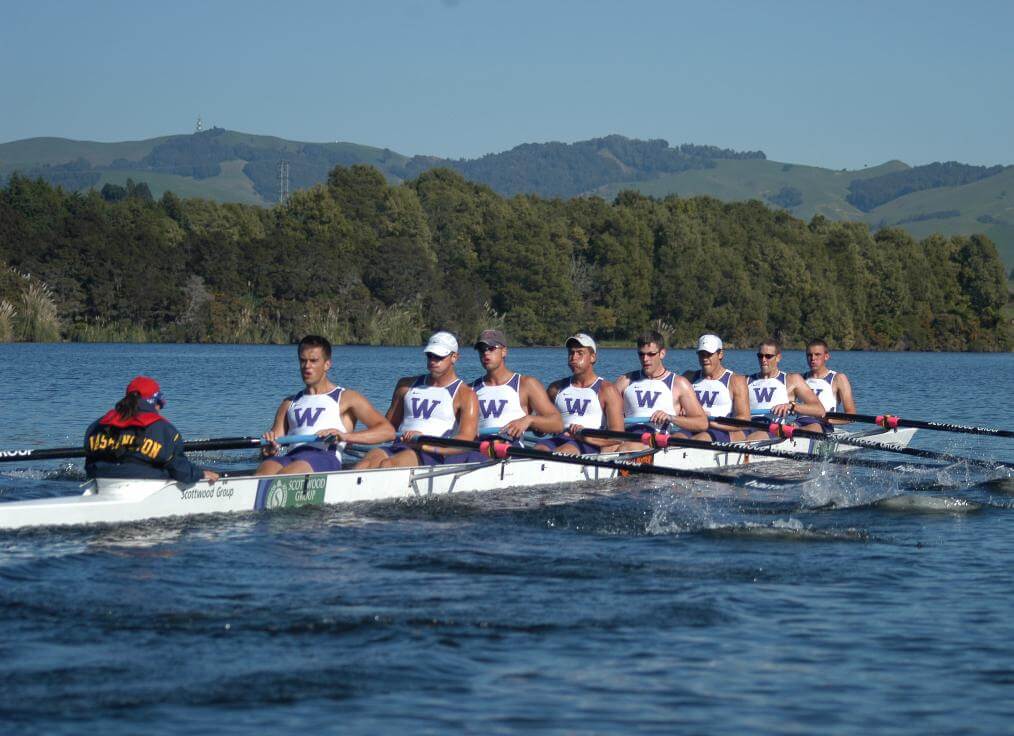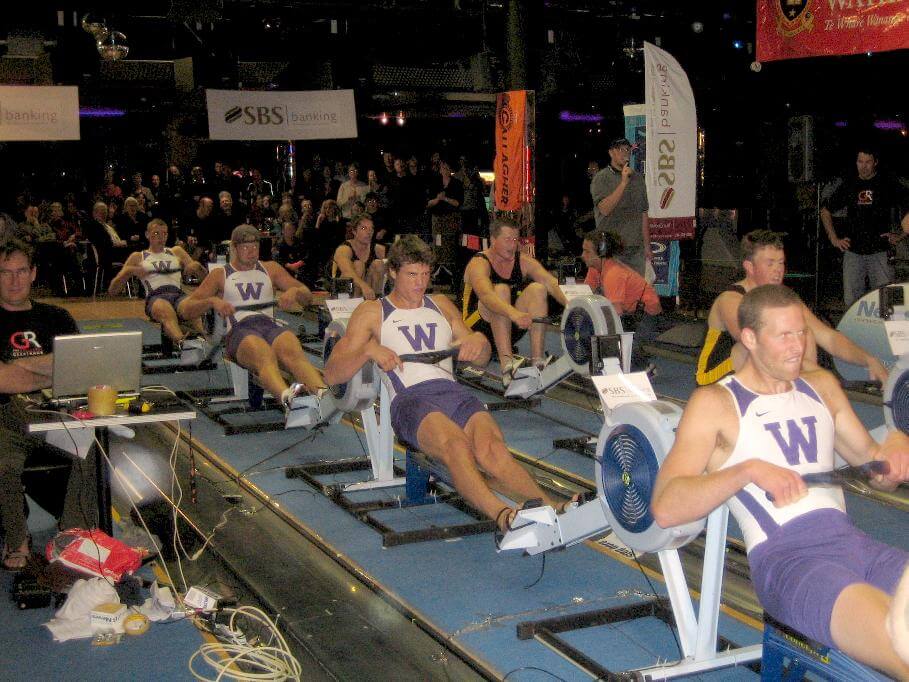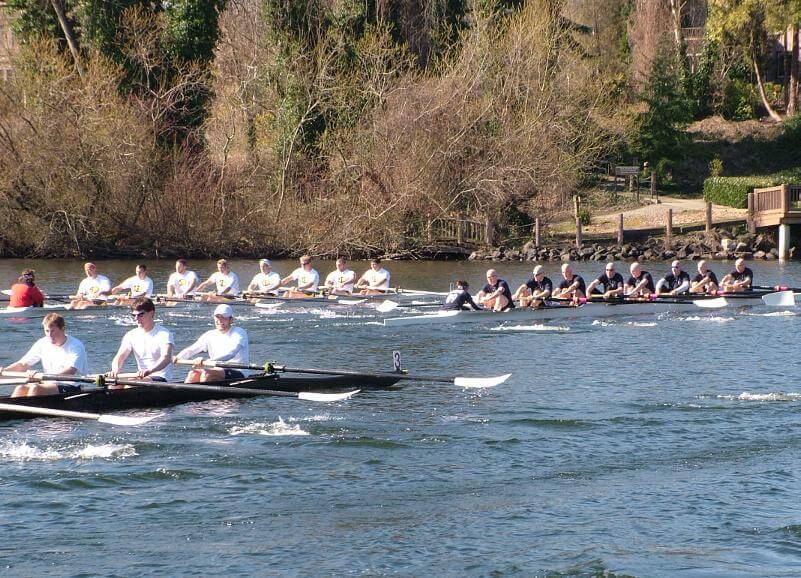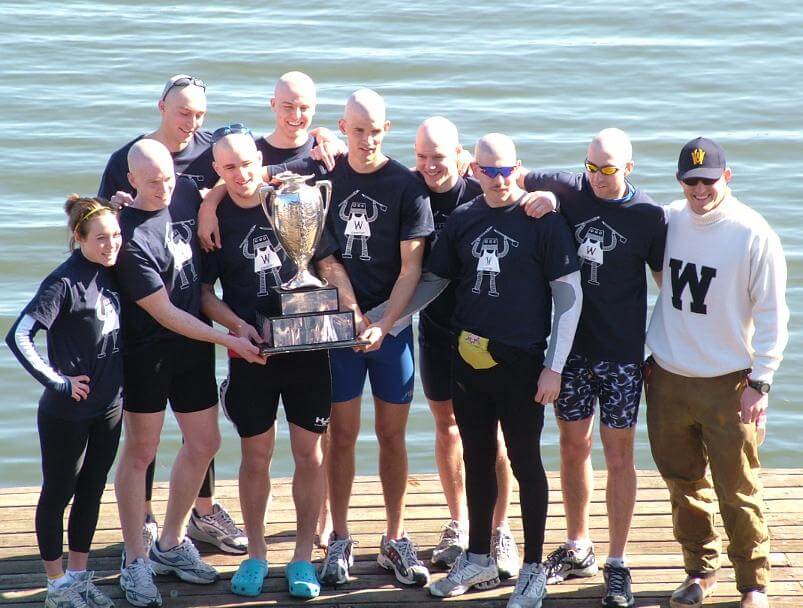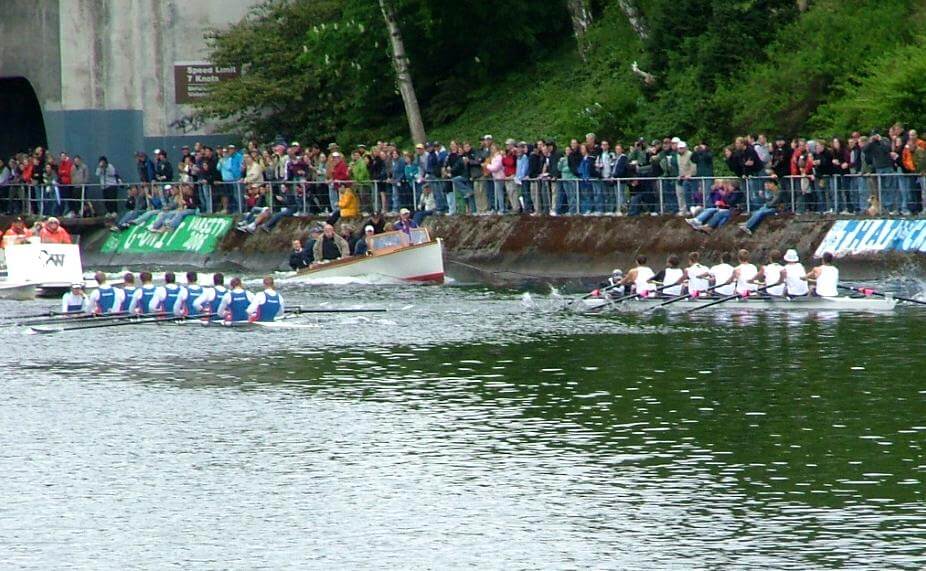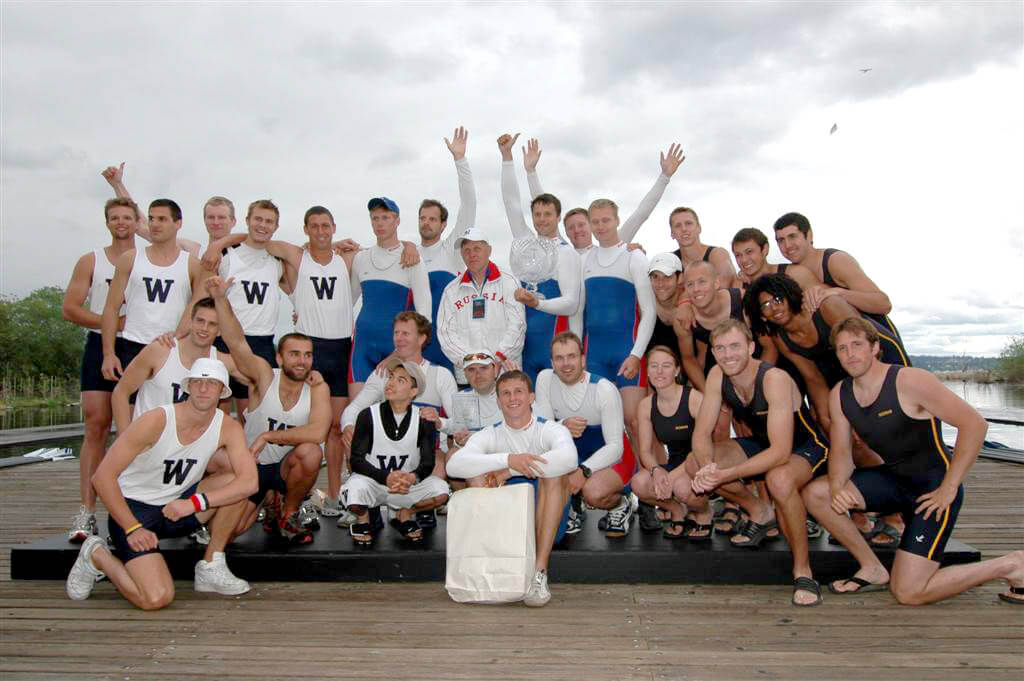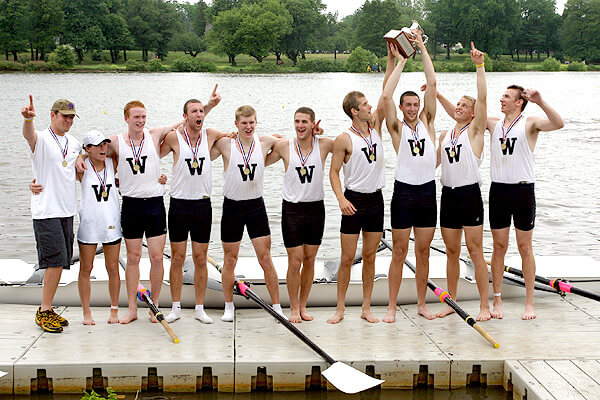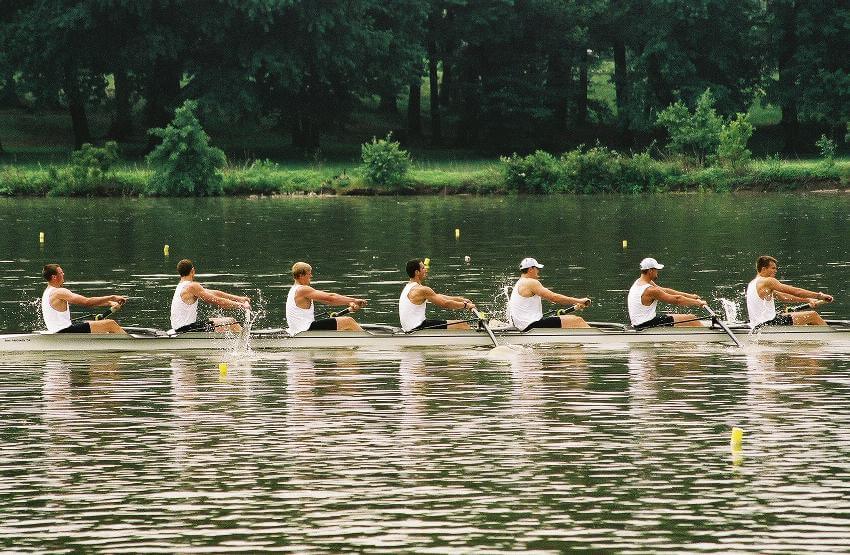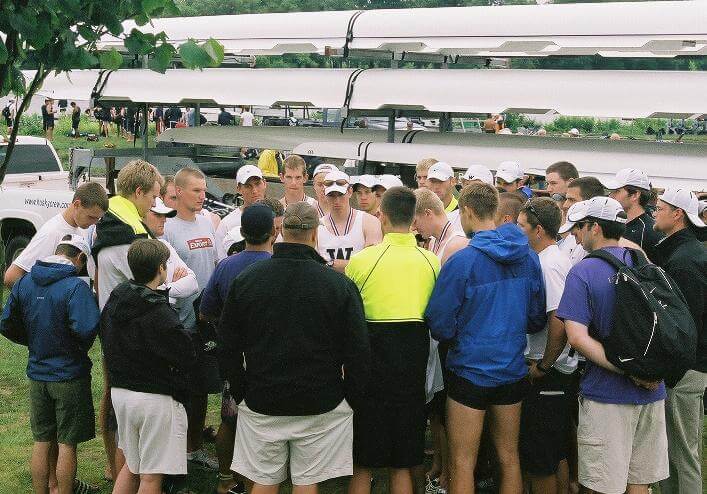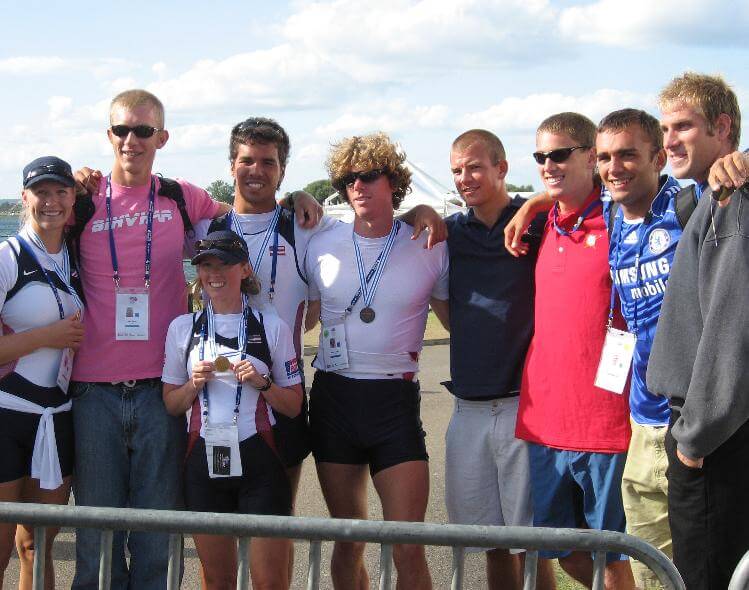With the 2005 season barely in the rear-view mirror, Bob Ernst announced that the team had accepted an invitation to row in the “Great Race” in New Zealand, a dual-race regatta that is the Southern Hemisphere’s version of a Windermere Cup/Head of the Charles/Henley combo. Raced upstream on three miles of the Waikato River near Hamilton, the course is lined with spectators and televised nationally across the country, fans cheering for local powerhouse Waikato University, a team that this year would include five NZ national team members and a recently minted world champion.
Besides the normal preparations and planning required for a cross-continental trip, this one added the unique variation of taking place on September 10th, three weeks before school even started in Seattle. Ernst would spend the last days of August searching for water that would resemble the Waikato River, settling on the Snohomish River near Everett. The team, made up of eligible athletes for the 2006 season, left August 27th after a brief time together at home. Once in New Zealand and adjusted for the time and weather, the team settled in to a solid training regimen in preparation for the event.
The Waikato River in September – early spring in the southern hemisphere – is a mixture of crosscurrents and eddies. The key to the dual race is to get out early and get next to shore. Washington, starting in the mid-river, outside lane, got the quick jump on Waikato, moving to a half-length lead. At that point oars were entangled, the Huskies forced further into the current. Recovering, Washington again took the lead, only to have oars entangle again. This time the team could not recover, Waikato hugging the shore and moving to a length lead, cruising into the finish two miles later, three lengths ahead of Washington.
The sting of the defeat was tempered by the hospitality of the team’s New Zealand hosts, the event ending that evening at the Great Race Ball, a formal, costumed affair. The men returned home after a once-in-a-lifetime opportunity to see New Zealand and compete, off-season, at a very high level.
But there would be no rest for the road weary on their return. Ernst had the team quickly following the fall/winter workout routine, leading into a season that would start a week early due to the Windermere Classic at Redwood Shores, scheduled for the last week in March. Meanwhile, the buzz around the crewhouse was of a freshman class that could rival some of the best. As winter rolled into spring, the first glimpse of that arrived on Class Day, the frosh and seniors locked in a two-seat battle the entire length of the course, the freshmen prevailing in the last ten strokes – a frosh squad winning the Varnell Trophy for the first time since the class of ’50 did it in 1947.
There are a number of ways you can look at a frosh win on Class Day. The prevailing notion – the glass half-full notion – was that this was a bellwether class. That would be tested the next weekend at Redwood, and the young squad would live up to the high expectations, dominating both Penn and a Cal-Davis JV squad by 12 and 33 seconds respectively.
But the stunner came in the varsity event on Sunday. After two solid wins Saturday against Penn and Northeastern, the Huskies came out Sunday morning and met a Stanford squad hungry and determined, the Cardinal pasting a half-length on the Huskies early and driving home to a length win on their home course. The junior varsity – defending National Champions – also lost to a superior Northeastern squad hungry for revenge from the 2005 IRA match up. The varsity team limped home, the freshmen the only squad building on momentum.
After three weeks of practice and re-shuffled line-ups, the men would travel back to Redwood Shores, this time to face the Bears for the annual Dual. Stanford had also whacked Cal’s varsity – at San Diego a week after the Cardinal defeated the Huskies. So this battle was between two powerhouse programs, each embarrassed by a Stanford team that was anything but a fluke now, and each looking for a momentum switch.
That momentum developed in the first twenty strokes of the varsity match-up, and it was not Washington’s. Cal exploded out of the blocks and rowed the race with a vengeance, continuing to add length to their lead as the crews sprinted into the finish, the Bears winning by almost eight seconds. The JV’s also got knocked out early, holding to a four second loss but still seeing open water at the end.
The freshman event was the last race of the regatta – the marquee event – with both programs boasting of exceptional classes – but Washington still favored due to the Class Day win. Out of the blocks it was even, but Cal began to lengthen into the first 1000 meters, while the Huskies tightened up and shortened. By 1500 the outcome was clear, and Cal stroked across the finish line with open water, completing the sweep in dominant fashion, with open water in all races.
It was a devastating outcome for Washington. The varsity was outright mauled. But it was the freshmen loss that would leave the team – and fans – in an almost catatonic state. It was a momentum shift all right, but more like a meteor hitting the earth; all that was left was the crater. So the coaches were left to pick up the pieces, frosh coach Callahan imploring, “they don’t know how good we actually are.”
Next up was the Windermere Cup, with the Russians coming for the first time since the inception of the Windermere Cup in 1987. That year, the then Soviet Union pinned a four-length win on the Huskies in front of the hometown fans, and suddenly a déjà vu moment was staring the program in the face. But once again the team would surprise – this time exciting the crowd as they held within four seats of the Russians down the course, the visitors winning in the sprint but the Huskies looking strong and – more importantly – gaining some much needed confidence heading into the Pac-10’s a week later.
So the team had found some momentum again. And they would need it, with the varsity seeded third as they arrived at Lake Natoma for the Pac-10’s. But in the final the Huskies dropped off the pace early, down by a length in the first 500 meters. Meanwhile, Stanford and Cal battled down the course, the Bears prevailing by a length over their Bay area rival, with the Huskies another length back. Whatever magic had been found at home a week earlier was gone in a flash back in California – the Bears sweeping all of the men’s events at the Pac-10’s (V4+, F8, 2V8, V8) for the first time since Washington did it in 1997.
Three weeks later and the Huskies came into the IRA’s with a ‘nothing to lose’ attitude, having been stung repeatedly all year, from Waikato to Natoma. However, out of the darkness of the Pac-10 results were some encouraging developments: not that there was a lot of time left, but both the JV eight and the freshmen came within a half length of the Bears, seriously denting the margin of victory at the Dual and suggesting Callahan’s comment after that race had some merit. But seeded seventh in the varsity event, the Husky varsity was not expected to make the final, although it was not like Bob Ernst hadn’t tried all season. By the time he was set on a line up for the IRA, he was on his 13th oarsman in the varsity boat, this time inserting the JV stroke pair.
It should also come as no surprise that somehow – out of the twenty-four crews in the race – Cal and Washington would end up in the same first heat together on Thursday. But the outcome would be far, far different from the previous encounters. The Huskies shot out of the gate, leading Cal at 1,000 meters, the Bears catching them in the sprint but only after the two crews rowed the two fastest times of the day, with no one else even close. “We’re gaining a little more speed here and there and it’s just all adding up right now. We kind of exploded today on the water and it felt great,” said five-oar Rob Gibson.
In fact, all four Husky crews advanced into their finals two days later, a feat that if predicted three weeks earlier would have seemed flat out delusional. But these results were indicative of a mindset and a determination that could be seen in the strength of the program over the last decade. On Saturday, first out of the blocks for their final were the Open 4’s, Washington rested after an opening heat win on Thursday put them straight through. Out of the blocks they showed it, although down to the field they were understroking their competition; at the midpoint they led, fought off a move by Cal, and then coasted home in control, winning IRA gold for the fifth consecutive year in fours competition.
The frosh were next up, Cal and Washington seeded 1 and 2 and easily reaching the finals via separate brackets. In the final, the two crews exploded out of the gates, separating from the field in the first 500 meters, but in a reversal of the roles played out all season: Washington was leading. At about 600 meters the Huskies put on a decisive move to take a half-length lead, continued to lengthen their stroke, and sprinted across the finish in 5:38.8, one second ahead of California. “Today”, said Callahan, “before we went out, we didn’t talk about beating them. We just talked about achieving our best race and reaching our optimum potential. And, I think we did it.”
The 2V’s fought just to make the final. The team finished third in their opening heat, and were forced into a winner take all rep against California on Friday – with the season’s history clearly not on the side of Washington. But in a remarkable turnaround, the Huskies tore out of the blocks and rowed a wire-to-wire win – for the first time all year – over the Bears. “I couldn’t be prouder of those guys,” Ernst said. “That was a courageous race. You find out what kind of athletes you’ve got in a rep where only the winner goes to the grand final.” Unfortunately the team could not find the same speed in the final, missing the medal stand by a half-length and finishing fourth on Saturday.
So it was – and based on everything leading up to this race flat-out unbelievable – that Washington had two golds and a near bronze as the varsity set into the gates in lane 3, with Cal on one side and Princeton on the other. Once started the crews rowed through 500 meters together, not more than a half-length separating the field. At 1,000 it was still anyone’s race; at 1500 Princeton and Cal had separated just barely, and at the end it was all six crews barreling into the finish in a classic, Cal edging Princeton, Brown sneaking past Harvard, Washington and Yale for the bronze. It was a breathless finish. “The varsity, that was a tremendous race all the way down, “ said Ernst. “ You sag for a couple of strokes there and you get left behind. I’m really proud of all the guys. They certainly rose to the occasion this weekend. That was a great race, six across racing all the way down.”
A great race it was. But the Washington performance here was nothing short of remarkable, and everyone knew it. The team finished third in the team competition, a half a second (between Harvard and Washington) in the varsity race being the difference between third and first. Contrasted to the pummeling they had taken all season, the whole team turnaround would compare only to the most extraordinary in the history of the program, Callahan’s words ringing true at the end: “they don’t know how good we actually are.”
This season, having started in the summer, would continue into the following summer for a number of the athletes. Rob Gibson, Will Crothers, and Max Lang would join former Husky Chris Alyard in the Canadian eight at the Under-23 Worlds, winning gold. The four men would then continue to the elite World’s, winning silver for Canada in the coxed four.
Katelin Snyder, men’s frosh cox, would guide the U.S. women’s eight to gold at the U-23 worlds, with Washington teammate Jesse Johnson rowing in the U.S. men’s entry at the same regatta, finishing fifth.
In addition, Washington would be well represented at the 2006 Worlds. UW graduates Brett Newlin, Giuseppe Lanzone, Matt Deakin, Kyle Larson, Scott Gault, Ante Kusurin, and Sam Burns would all race, Lanzone and Deakin bringing home bronze in the U.S. 8+.
Our full coverage of the 2006 season can be found here – 2006 Race Results.
